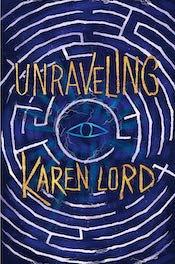The Future Alternative Past: See translation
Every month, Nisi Shawl presents us with news and updates from her perch overlooking the world of science-fiction, fantasy, and horror. You can also look through the archives of the column.
I write this column in English, and chances are good that’s the language you’re reading it in. Actually, though, SFFH is written in over a score of languages, and it posits a myriad more. Neil Clarke, editor and publisher of the online magazine Clarkesworld recently received the Kate Wilhelm Solstice Award for his work bringing stories in Chinese and Korean to Anglophone readers, and there are plenty of additional translations for us to enjoy — SFFH originally published in Spanish, Japanese, Nigerian, Italian, and many other human tongues.
But what about High Dwarvish? What about Klingon? What about R’lyehian?
Lacking a Universal Translator we must rely on authors’ representations of the speech of monsters, elves, and extraterrestrials. As far as communication between characters goes, fictional UTs abound, but they can also be derided, as in Maureen McHugh’s novel Mission Child, or eschewed when the point of the story is to show the effects of absorbing alien concepts, as in Ted Chiang’s “Story of Your Life” (adapted for film as Arrival). (Sometimes, as with the “common language” used in Gwyneth Jones’s Tiptree Award-winner White Queen, they’re both eschewed and derided.)
The Hitchhiker’s Guide series by Douglas Adams introduced the concept of the Babel fish, an imaginary biological UT whose name was appropriated by an actual translation website.
My contribution to the trope of translation begins with “Black Betty,” a story about a beagle who can speak English — of a sort — with the help of an expensive collar/antenna. In the first sequel, “Red Matty,” Betty the Beagle falls in love with a similarly equipped elephant; in the second sequel Betty’s best friend, a cat named Baby Boo, falls in love with a parrot. Though situated squarely within the SF genre, the Betty series harks back to fantasies aimed at children such as Dr. Dolittle, the Chronicles of Narnia, and The Jungle Book. And these, in turn, hark back to folk- and fairytales such as “The White Snake,” in which the power of understanding what animals have to say is magically bestowed.
There are thriving communities dedicated to the creation and study of non-human-and-also-non-beast tongues. Conlangers have imagined new grammars, syntaxes, even alphabets as part of their constructed languages, then made the fruits of their obsessions freely available to all. Here’s an automatic translator for the native tongue of H.P. Lovecraft’s ruined cyclopean city R’lyeh, and here’s another for George R.R. Martin’s Dothraki. There’s also a conlang subreddit including translations, and with threads asking and answering questions about how to deploy variousSFFH languages. Will children learn them easily? How do you show different registers — formal elocution versus slang, intimate versus impersonal, and so on? How should they change over time?
Because languages do change — swiftly, unexpectedly. Vowels shift and meanings mutate until translations become necessary not simply between nations but between generations. ShakespeareanEnglish is semi-unintelligible to most modern English speakers. If humans 500 years from now speak some new version of English, what will they understand of our own?
Recent books recently read

Though billed as a standalone, prize-winning Caribbean author Karen Lord’s latest novel, Unraveling (DAW), is a sequel to her first one, Redemption in Indigo. Perhaps the new book was marketed this way because it’s offered by a different publisher? Undying entity Chance (known to the Senegalese people as a djombi), who at the end of Indigo was forcibly incarnated as a child of the wise cook Paama, joins forces with forensic therapist Miranda Ecouvo to ferret out the party ultimately responsible for a series of nasty murders. Lord’s brisk, straightforward prose style works especially well to tell a tale of angels and other immortals accustomed to the kinky chronologies lying outside time. As Dr.Ecouvo walks labyrinthine paths through futures that include her possible death and, alternatively, a severely limited, pain-filled life, paradoxes give way to passionate curiosity and stubborn good intentions.

Strictly speaking, Erin K. Wagner’s novella The Green and Growing isn’t all that recent; Aqueduct Press published it way back in January of this year. But I did just read it, and I’m struck by how appropriate an analogy it is for allyship. In short, dense chapters, Wagner relates the encounters of Ward Miquita with the people of the planet her father conquered. Miquita is twenty-seventh of the conqueror’s forty-two daughters, and more or less a hostage whose presence helps ensure both sides adhere to the peace treaty with which the war ended. But Miquita wants to do more than that — she wants to repair the damage her father caused to the losers’ planet-wide, plant-based AI. She encounters an unexpected obstacle: her hosts contend she has no right to access the sacred memories the injured AI holds. Miquita’s nuanced privilege, the fierce defense mounted against her intrusiveness by those she wants to benefit, the depth of sacrifice ultimately required of her, all resonate strongly with me and remind me of the stress evident in modern day interactions between whites and POC. Gorgeous images of a richly strange world cover this ethical armature in a sweetly fleshy narrative, a joyful ferment of words.
Couple of upcoming cons
Once again I recommend attending Readercon which prides itself on being the antithesis of a media-focused convention. Maybe that’s a good thing? There’s still a screening scheduled for GOH Tananarive Due’s documentary "Horror Noire: A History of Black Horror". And a concert. However, those are only two events on top of the usual literary fare: panels, interviews, readings, and the small-group discussions with pros listed on your program as kaffeeklatsches. _In other words, Readercon is, as the name implies, pretty solidly text-oriented.
Not so Blerdcon, which features a five-minute video tribute to cosplay on its website: Killmonger gets down with some joy-filled Super Mario Sistahs; multiple Deadpools pop, lock, and drop it with Star Wars revolutionary Rose Tico; it’s a geek visuals party! The majority of the participants pictured are African descended, but other ethnicities represent as well, giving off a nicely inclusive, welcoming vibe.
Wish I could say the same for Geektopia. Encouraged by the description of “A community that accepts all, practices tolerance and celebrates diversity,” I scrolled through page after page of their website and found one guest who’s definitely of Chinese extraction, and one other photographic subject who is, shall we say, ambiguous. In the words of Bozo the Clown, Geektopia is an “almost winner.”